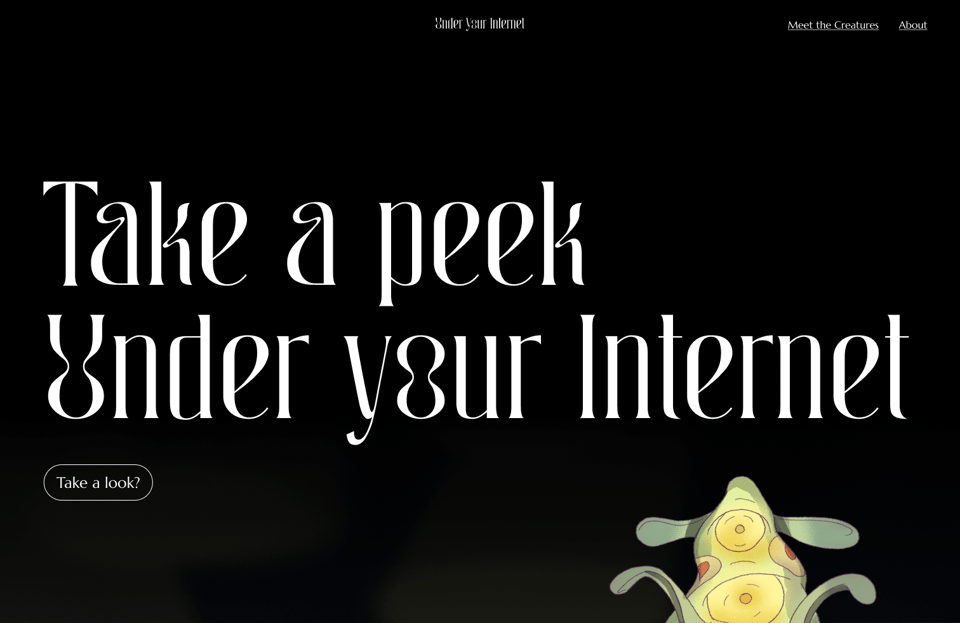Under Your Internet

Under Your Internet
As seems to be my way with these newsletters, this one will be short(ish) and sweet after last month's long and sour.
Over the last year and a bit, I have been working on a project for Mozilla Grant on data futures. Our aim was to engage and encourage young people to share their opinions about today's digital technologies, and to hopefully help to reorient technology in ways that shared their values.
In this pursuit, with attempted multiple experiments asking young people to imagine new tech paradigms through the lens of 'my ideal social media'. However, we quickly encountered a problem that seems to be the Zeitgeist of our current times. (Queue Adam Curtis music) In a society where Big Tech's standards of data extraction, algorithms, and monopoly are so omnipresent and immutable, it was like asking a fish 'How's the water?'. They had never bothered to consider it. Furthermore, imagination can often require a certain level of belief in one’s own agency, and most students felt powerless against an industry that seemed not to care about them at all. As one kid put it when asked if they had any power to change things, “Are you kidding? They're tech companies. I'm a 16-year-old. They're giants and I'm an ant.”
So we dramatically changed tack and choose instead to show young people that change was possible, that today’s extractive data practices weren’t the only option and that people were already exploring alternatives. In this pursuit, we created 'Under Your Internet'. An experience that begins by exposing the volume of information that is collected and resold by your very own ‘data monster’. Then recommends a new model of data stewardship based on your answers to a series of metaphorical questions on your beliefs on data collection and usage, altruistic or capitalistic tendencies and privacy. It's kinda like a BuzzFeed quiz from the 2010s, but instead of finding out which Friends character you are, you discover an inspiring alternative to surveillance capitalism.
Each of these data models was brought to life (in part by the amazing illustrator Charlie Spies) as ‘data creatures’, who you can chat to and find out more about how they might work and existing examples. By transforming the models into characters, we hoped to make what can be a very technical topic a little more accessible and emotionally salient, and thus inspiring.
Give it a go here
Also want to thank everyone in the Fix The Code team that made this happen. Allison, Meg and Tania, it's been a great year working with you all, and I'm really proud of what we made together.
That's all from me this month, thanks for reading and I hope you have a great week,
Fred
-
My Website: https://www.fredwordie.com